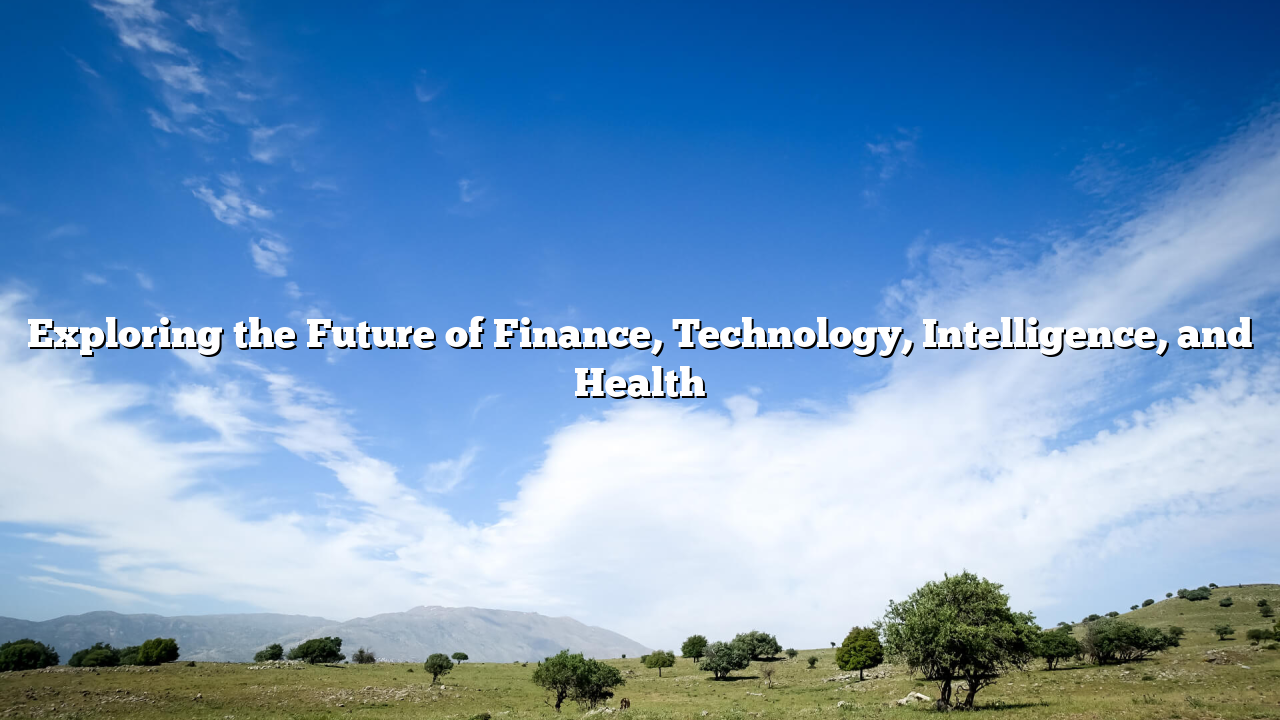
Exploring the Future of Finance, Technology, Intelligence, and Health
—
Introduction
In recent years, advancements in various sectors such as finance, technology, intelligence, and health have been shaping our lives in unprecedented ways. These fields are not isolated; they overlap and influence each other, creating a dynamic environment of opportunities and challenges. In this article, we explore how these domains interact and the future possibilities they present.
—
Finance: The Evolving Landscape
As financial markets continue to evolve, technological advancements are revolutionizing how we save, invest, and manage money.
One of the most notable changes in finance is the rise of cryptocurrencies. Cryptocurrencies, such as Bitcoin and Ethereum, have disrupted traditional financial systems by providing decentralized, borderless alternatives to traditional banking. While cryptocurrencies offer immense potential, they also come with risks, such as volatility and regulatory uncertainties.
Fintech innovations have made financial services more convenient and accessible to people around the world. These companies use technology to streamline banking, payments, lending, and investment services. Fintech companies leverage the power of artificial intelligence and big data to create more efficient financial services.
—
Technology: Driving Innovation Across Sectors
Technology is the backbone of all modern advancements, playing a central role in almost every industry. From automation to artificial intelligence, technology is enabling solutions that were once thought impossible.
AI technologies are improving efficiency and accuracy in fields like healthcare, finance, and customer service. AI is transforming industries by enabling predictive analytics, improving customer service, and enhancing operational efficiency.
In the healthcare sector, AI is playing a pivotal role in diagnosing diseases, predicting patient outcomes, and improving the quality of care. Additionally, technological advancements such as telemedicine and wearable health devices have made healthcare more accessible and efficient.
—
Intelligence: Human and Artificial
The concept of intelligence, both human and artificial, is at the heart of many innovations in modern society. While human intelligence is characterized by creativity, problem-solving, and emotional intelligence, artificial intelligence mimics some of these abilities, creating a new form of computational intelligence.
In recent years, AI has made significant strides in mimicking human cognition. Machine learning and deep learning are giving rise to smarter, more autonomous systems.
While AI is transforming industries and society, there are concerns about its impact on the workforce and human autonomy. These challenges need to be addressed through ethical guidelines, regulations, and continuous human involvement in decision-making.
—
Health: A Focus on Well-being
Health is a central concern for societies around the world, and modern advancements are making it easier to maintain and improve our health.
Personalized healthcare is becoming a reality with the integration of genomics, biotechnology, and data analytics. With genomics, healthcare providers can tailor treatments to the unique genetic profiles of individuals, resulting in more effective care.
There is Situs slot gacor growing emphasis on preventing illness rather than just treating it. Technologies such as wearable devices are helping individuals monitor their health in real-time, providing data that can lead to early detection of health issues.
—
Conclusion
As finance, technology, intelligence, and health continue to evolve, they will intersect to create a more integrated and efficient future. While the future looks promising, it is essential to approach these developments with caution, ensuring that they benefit humanity as a whole.
In the coming years, the interplay between finance, technology, intelligence, and health will determine the trajectory of global development.

